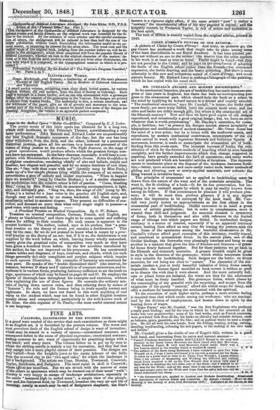A inictical Treatise on Musical Composition. By G. W. Rohner.
Treatises on musical composition, German, French, and English, are " plenty as blackberries," and there ought to be some special and sufficing reason for adding to their number. No such reason is apparent in the present instance. The author, indeed, says in his preface, that " a prac- tical treatise on the theory of music yet remains a desideratum." This may be the case; for we do not pretend to know what is meant by a prac- tical treatise ou the theory of an art: but, if it is so, the desideratum is not supplied by the work before us, which, leaving theory wholly untouched, merely gives the practical rules of composition very much as they have been given a hundred times before. In the few novelties introduced by this author, he has not improved on his precursors. He has constructed certain tables and diagrams, of keys, intervals, and chords, which (as such things generally do) only complicate and perplex subjects which require no such operose illustration. His examples of harmony are sometimes far from pure. He speaks of the " double diminished third" (the interval, for instance, between D sharp and F natural) as of common occurrence, and in- troduces it in various forms, producing harmony sufficient to set the teeth on edge; specimens of which may be found on pages 36 and 37. He employs the figures of thorough-bass throughout his examples and exercises, without even explaining the use of those figures. He commits the ordinary mis- take of laying down narrow rules, and then relaxing them by means of "licences "; the rale and the licence being in truth equally correct and legitimate. In short, we have not found in this work anything of real value to the student which may not be found in other English treatises equally cheap and compendious; particularly in the well-known work of Mr. Goss, the able organist of St. Paul's,-the most useful manual extant in our language.


























 Previous page
Previous page